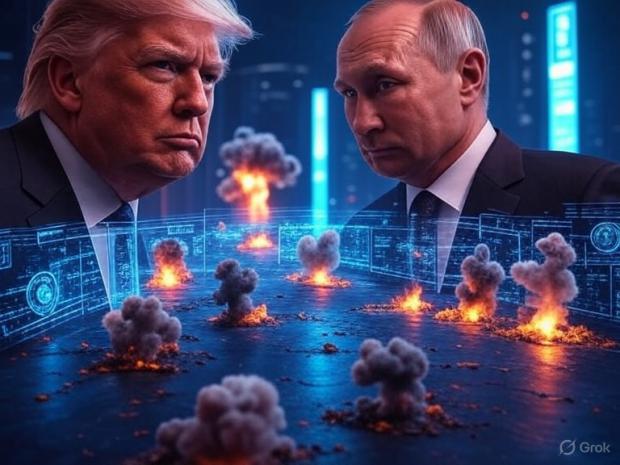
Breaking News
 The Days of Democracy Are Over
The Days of Democracy Are Over
 Elon Musk Described an AI Device to Replace Phones in 5 Years
Elon Musk Described an AI Device to Replace Phones in 5 Years
 Deposit Insurance For Billionaires?
Deposit Insurance For Billionaires?
 Rep. Troy Balderson Is Right: Coal And Gas Drive Affordable, Reliable, And Clean Energy
Rep. Troy Balderson Is Right: Coal And Gas Drive Affordable, Reliable, And Clean Energy
Top Tech News
 Graphene Dream Becomes a Reality as Miracle Material Enters Production for Better Chips, Batteries
Graphene Dream Becomes a Reality as Miracle Material Enters Production for Better Chips, Batteries
 Virtual Fencing May Allow Thousands More Cattle to Be Ranched on Land Rather Than in Barns
Virtual Fencing May Allow Thousands More Cattle to Be Ranched on Land Rather Than in Barns
 Prominent Personalities Sign Letter Seeking Ban On 'Development Of Superintelligence'
Prominent Personalities Sign Letter Seeking Ban On 'Development Of Superintelligence'
 Why 'Mirror Life' Is Causing Some Genetic Scientists To Freak Out
Why 'Mirror Life' Is Causing Some Genetic Scientists To Freak Out
 Retina e-paper promises screens 'visually indistinguishable from reality'
Retina e-paper promises screens 'visually indistinguishable from reality'
 Scientists baffled as interstellar visitor appears to reverse thrust before vanishing behind the sun
Scientists baffled as interstellar visitor appears to reverse thrust before vanishing behind the sun
 Future of Satellite of Direct to Cellphone
Future of Satellite of Direct to Cellphone
 Amazon goes nuclear with new modular reactor plant
Amazon goes nuclear with new modular reactor plant
 China Is Making 800-Mile EV Batteries. Here's Why America Can't Have Them
China Is Making 800-Mile EV Batteries. Here's Why America Can't Have Them
Russian lawmaker: Moscow could send NUKES to Cuba and Venezuela

• A senior Russian lawmaker, Alexey Zhuravlyov, warned that Moscow could station nuclear-capable missiles in Cuba and Venezuela, deliberately escalating tensions with the U.S. and invoking Cold War-era brinkmanship.
• Putin showcased advanced nuclear weapons tests (Poseidon underwater drone, Burevestnik cruise missile), prompting Trump to order the U.S. to resume nuclear testing "on an equal basis" with Russia, signaling a renewed arms race.
• Putin proposed a dubious "ceasefire" near Pokrovsk and Kupyansk, falsely claiming Ukrainian encirclement—a propaganda ploy to frame Ukraine as unwilling to negotiate. Meanwhile, Russian forces advance while violating international law (e.g., disguising troops as civilians).
• U.S. intelligence confirms Putin is doubling down on total victory in Ukraine, rejecting compromises. Kremlin officials amplify Soviet-style nationalist rhetoric, equating dissent with treason and hinting at further mobilization.
• While analysts dismiss Russia's nuclear threats as performative (given NATO's nuclear triad), Putin's brinkmanship aims to fracture Western unity over Ukraine. The Biden-Trump divide on handling Russia underscores the high-stakes geopolitical standoff.
A senior Russian lawmaker has escalated Cold War-era tensions by threatening to station nuclear-capable missiles in Cuba and Venezuela, directly challenging the U.S. amid deteriorating relations.
Alexey Zhuravlyov, Deputy Chairperson of the Russian State Duma Defense Committee, declared on Wednesday, Oct. 29, that Moscow could deploy missile systems "to Venezuela or Cuba," citing their proximity to the U.S. as a strategic advantage. "The U.S. is not a friend or partner – it is an enemy," Zhuravlyov stated, invoking memories of the 1962 Cuban Missile Crisis, when the world stood on the brink of nuclear war.

 China Innovates: Transforming Sand into Paper
China Innovates: Transforming Sand into Paper

